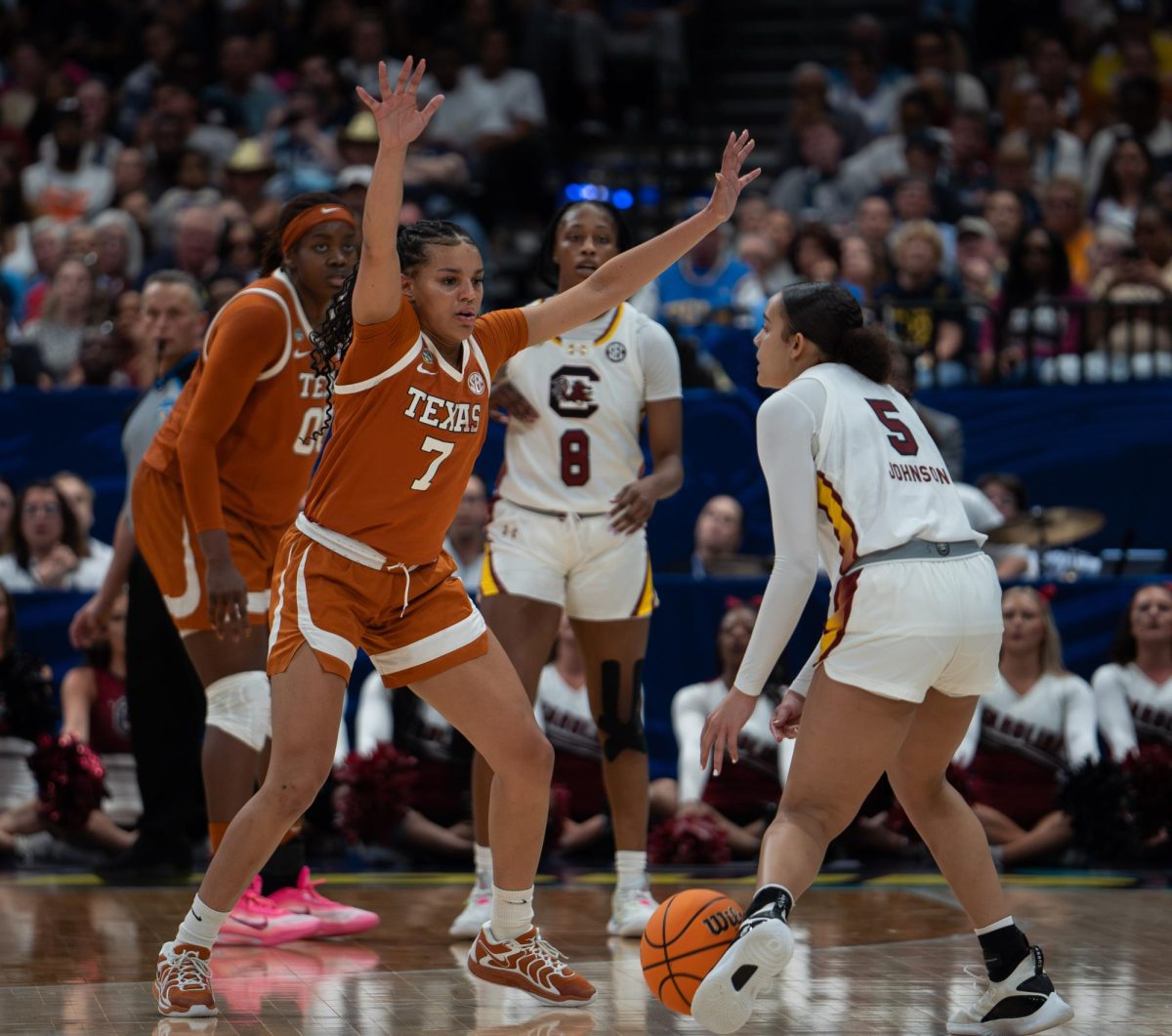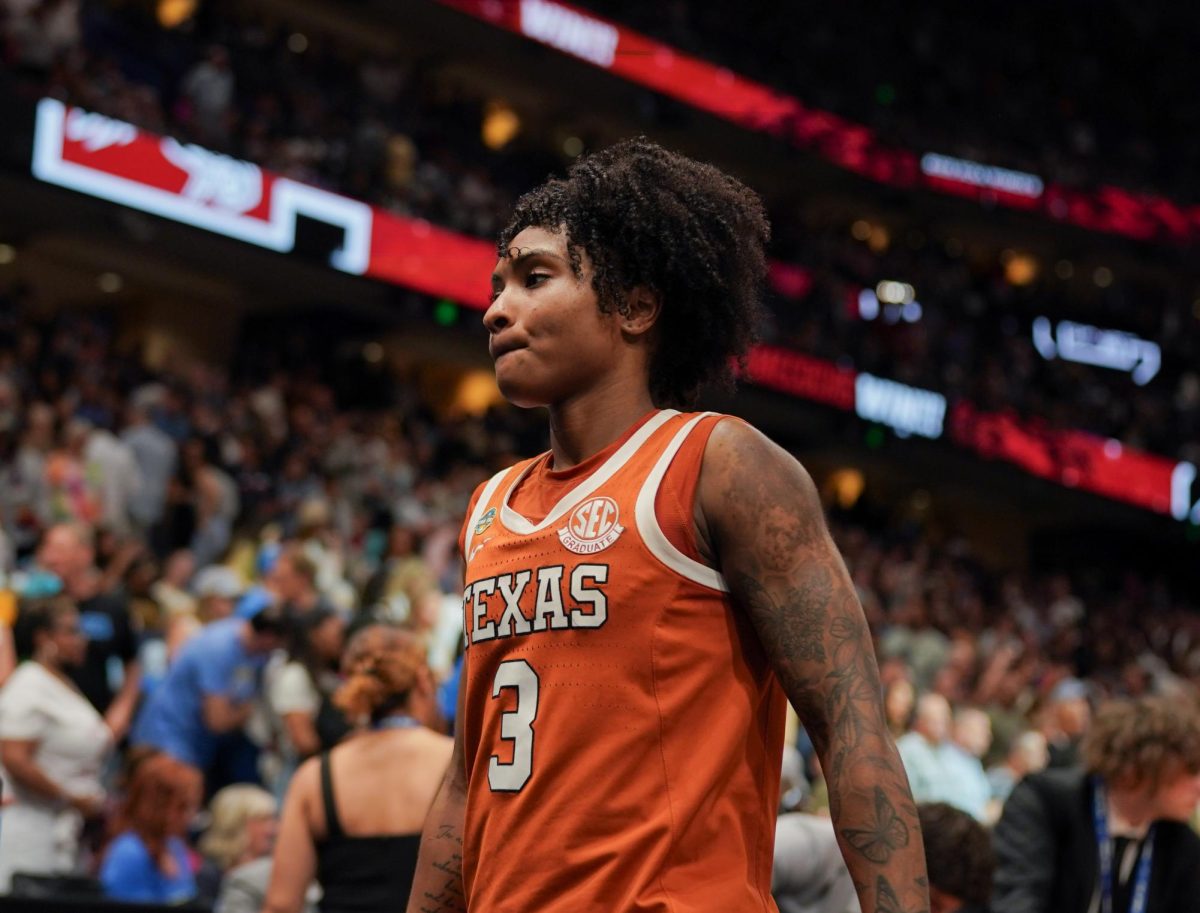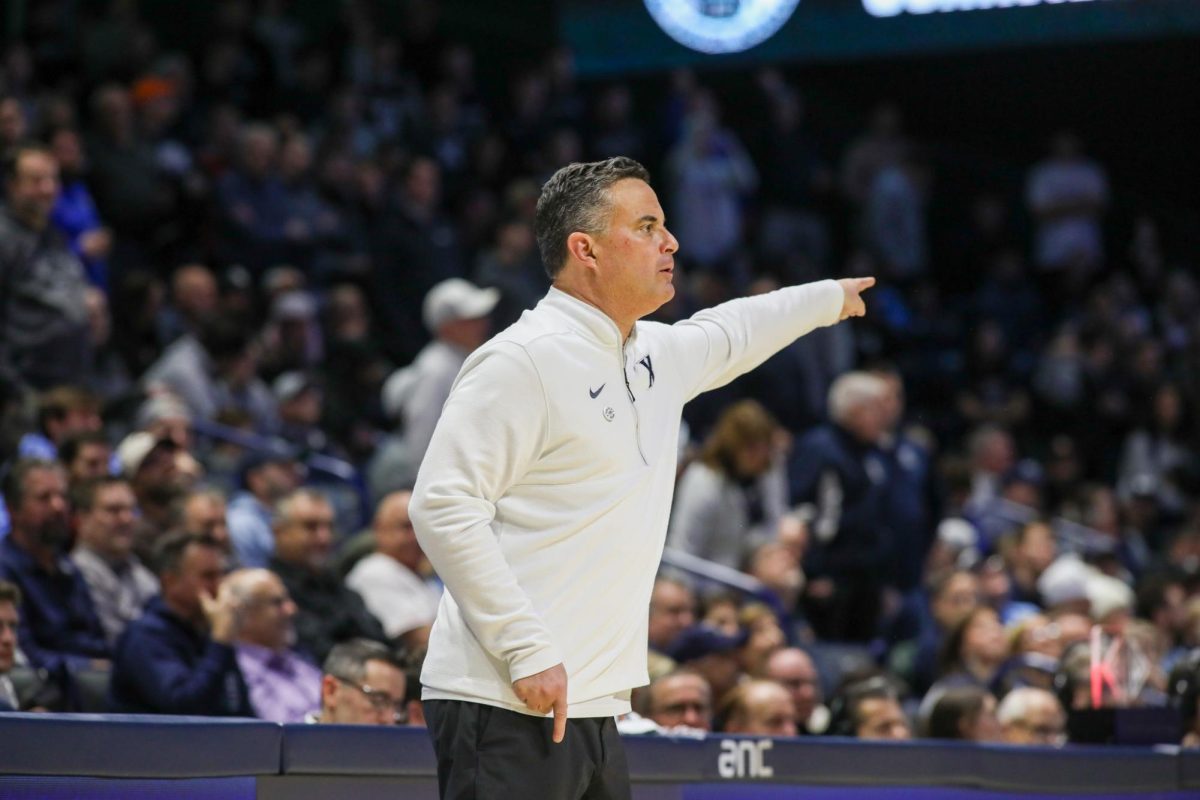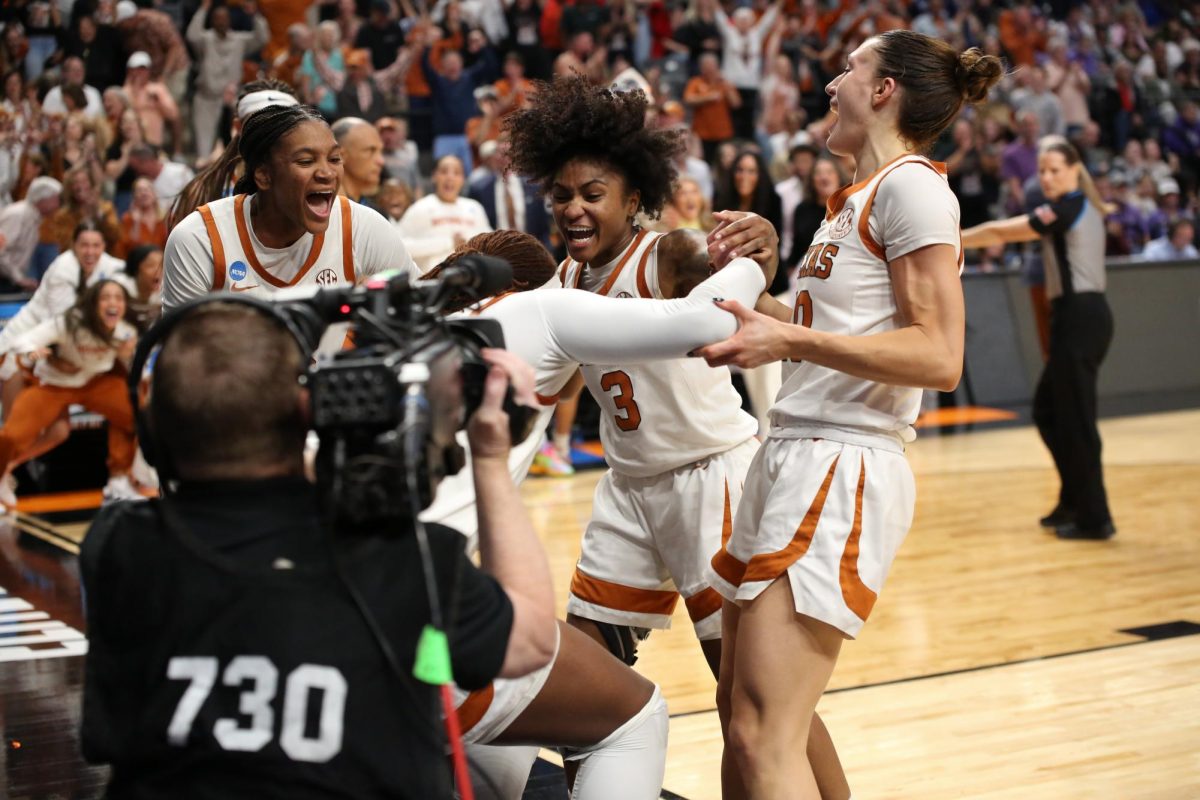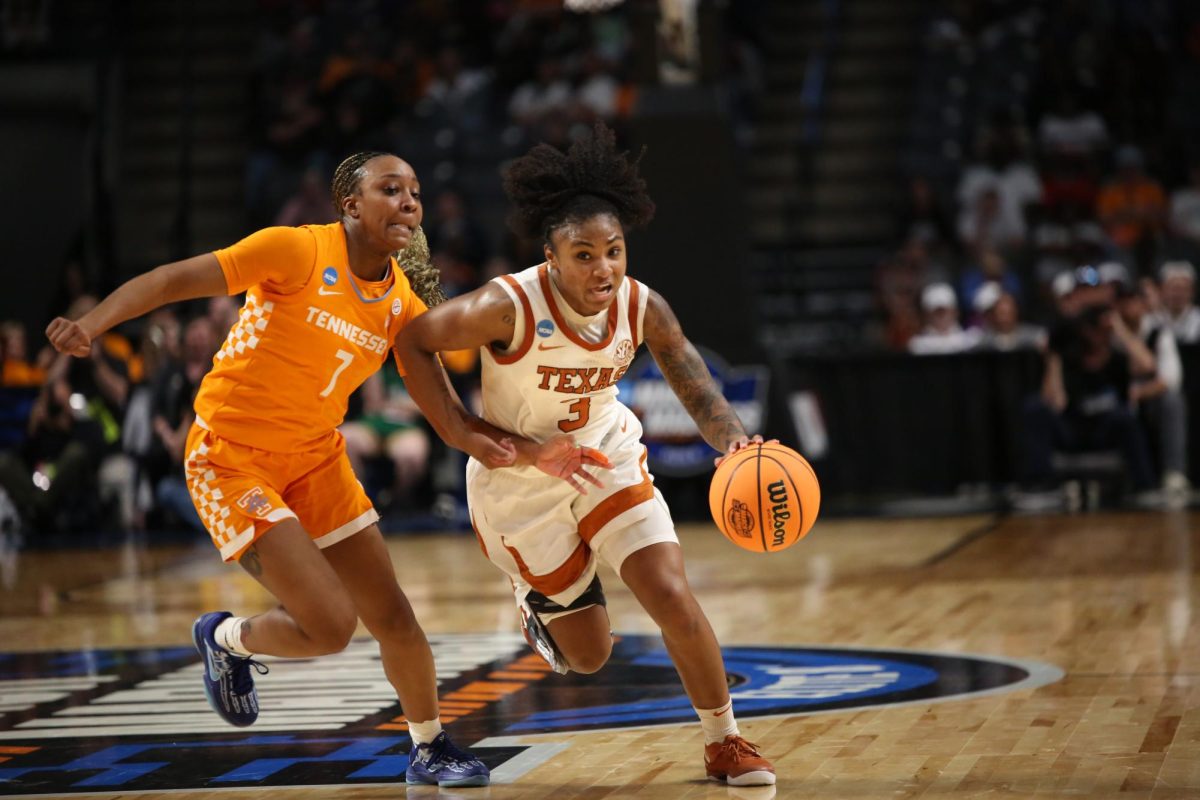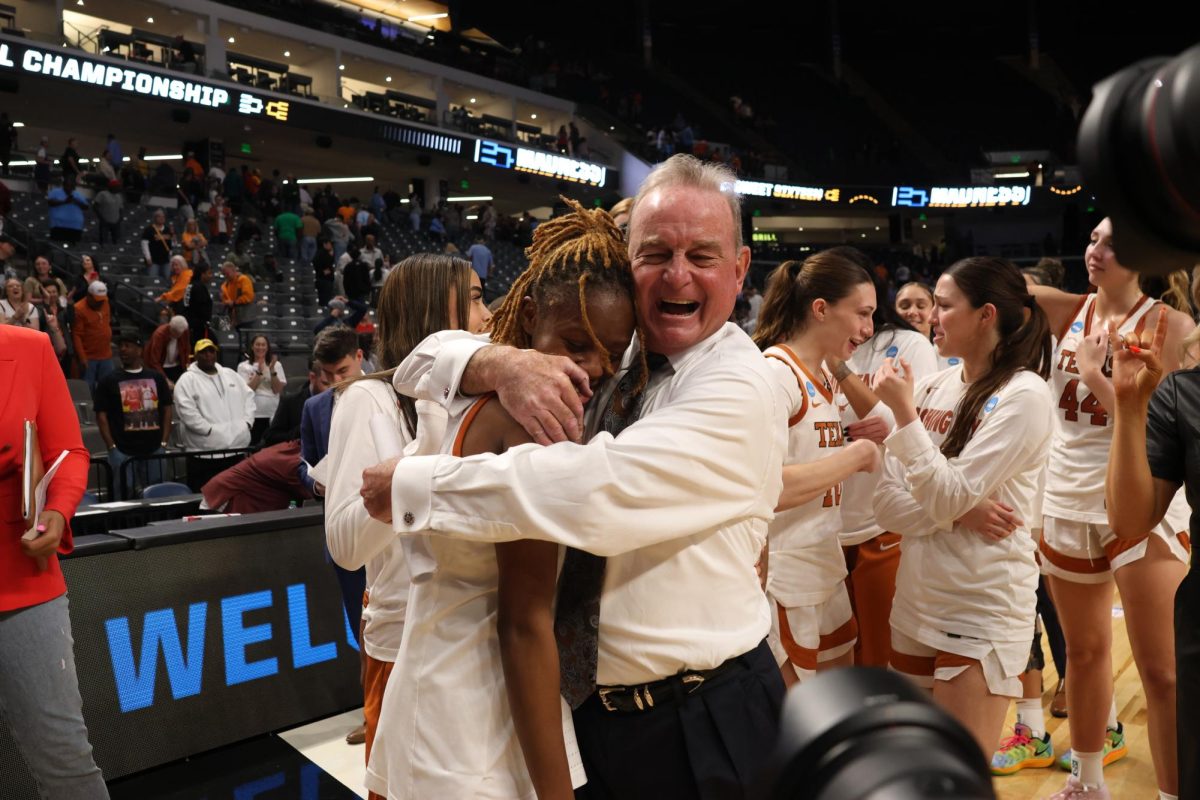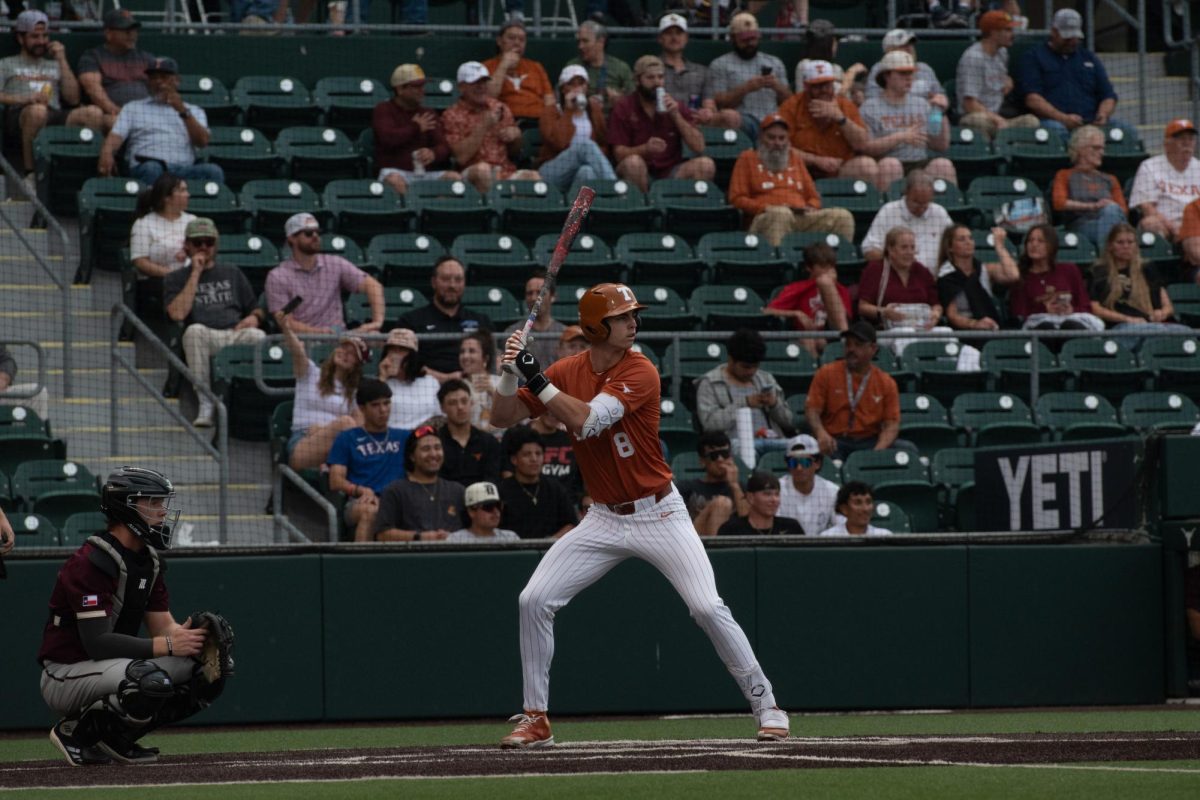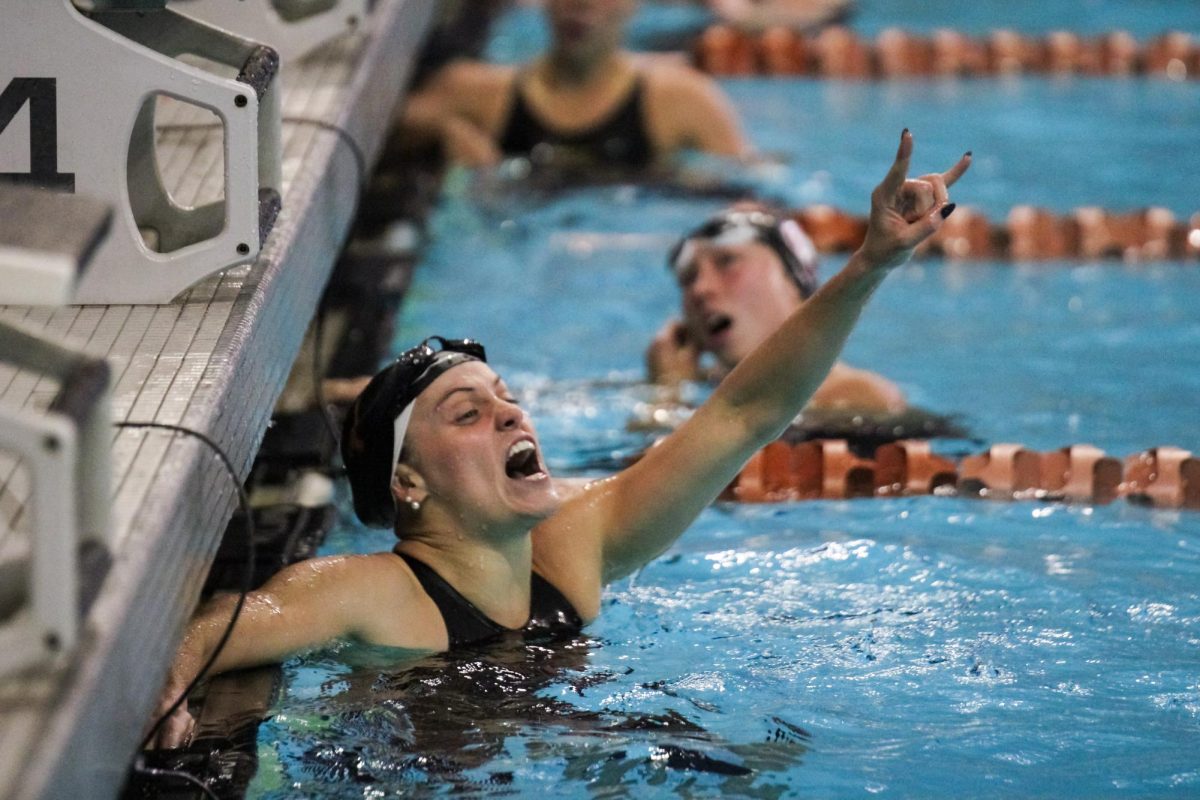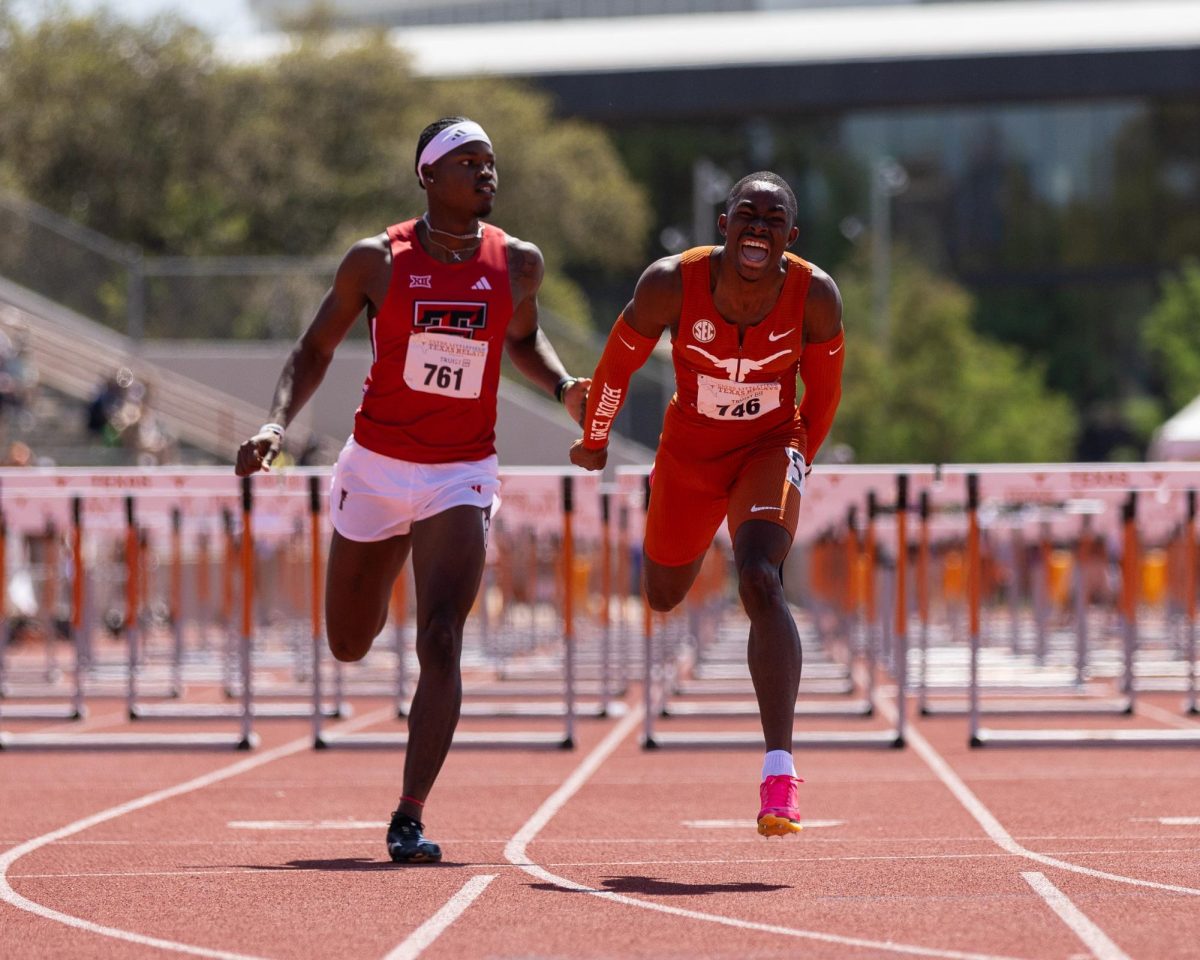Saturday’s down-to-the-wire loss was a reminder of just how fickle clutch offense can be.
In the first game against West Virginia on Jan. 9, redshirt junior guard Andrew Jones drained a game-winning 3-pointer on the road to bring Texas to 10–1 on the season and 4–1 in games decided by five points or less.
Then, in the second meeting between the two teams Saturday, Jones missed a potential game-winning open 3-pointer, marking yet another close loss in a 3–5 skid for the Longhorns, which includes a 1–3 record in close games since the win in Morgantown.
That record in close games becomes 1–4 if you include the 75-67 double overtime loss to Oklahoma State.
“It’s easy for your mind to say, ‘We’ll make them both,’” head coach Shaka Smart said. “That’d be great. But he made the one up there and we won. The one here didn’t go in … but that’s the nature of sports.”
There are several reasons outside of No. 14 Texas’s control that could account for the team’s recent poor performance down the stretch. Potential fatigue and lack of conditioning due to the constant pauses certainly hasn’t helped. Neither have absences in those close losses, not just to COVID-19, but also to foul-outs sidelining key players. And shooting luck has definitely not gone Texas’s way and should regress to the mean.
In the first 11 games of the season, with the game within five points in the last four minutes, Texas scored at a rate of 1.33 points per possession. In the last 8 games, Texas scored at a rate of 0.86 points per possession in that same timeframe. That’s the difference between the efficiency of the best offense in the nation and a bottom 10 offense.
Down the stretch, Smart will put the ball in the hands of his three veteran guards and allow them to create in the pick and roll or isolation. It’s how senior guard Matt Coleman hit the game-winner against North Carolina and how junior guard Courtney Ramey dished to Jones for the Jan. 9 game-winner in Morgantown.
But recently, teams have elected to go to a 2-3 zone late against the Longhorns, particularly in the Oklahoma State game, removing that game plan from the table. Success against that zone in late game situations is the first step for the Texas offense.
No matter the reason for the dip, the Longhorns need to return to their early-season form, or at least to league average, in order to right the ship. Their first opportunity to do so is Tuesday against a streaking No. 17 Kansas team.
The 17–7 Jayhawks are winners of five straight after a midseason slide that started with an 84-59 thrashing from Texas on Jan. 2.
Given the trajectory of the two teams battling for the second spot in the Big 12, tomorrow’s game isn’t likely to be another blowout.
“I tell them all the time, ‘The game’s probably going to be close. So be okay with that and actually enjoy that,’” Smart said.
It’s also senior night for the Longhorns, who will honor support staff and walk-ons Blake Nevins and Drayton Whiteside along with seniors Matt Coleman, Jase Febres, Royce Hamm Jr. and Jericho Sims, who have an extra year of eligibility due to the pandemic, if they choose to take advantage of it.

